Similar to the medjool dates, figs are sweet and versatile in desserts or by itself. It is a wonderful addition to milkshakes, nutritious meals, or decoration.
But, can cavies consume figs? Is the fig tasty for the cavy as it is for us? Are there precautions to take before you give this to your cavy? Let’s see below.
Can guinea pigs eat figs? Guinea pigs can eat figs, but in moderation. After all, this fruit is very sweet and high in sugars, so it’s not recommended to be eaten often, even for humans. Figs are considered a treat or a natural dessert, and you should give them as treat only.
Just as we would pay attention to our nutrition and portions, we must do the same for our cavies. In this article, you can learn more about figs, including its benefits, risks and nutrition facts.
Table of Content
Are Figs Good for Guinea Pigs? | Health Benefits
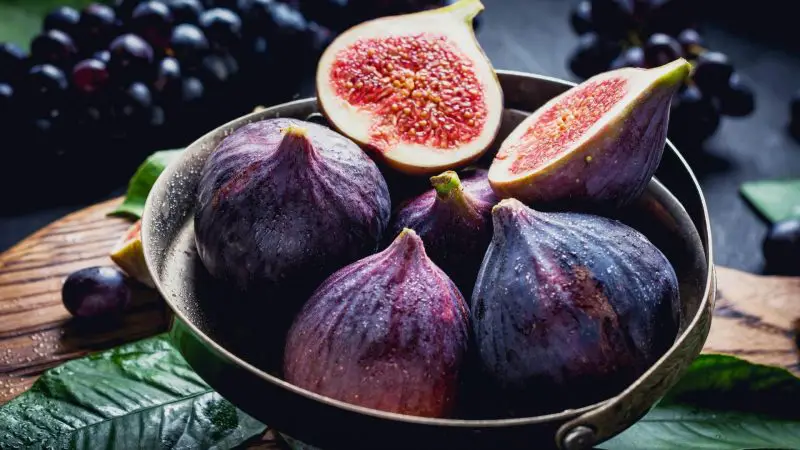
There are carbs and proteins in figs, which means the cavy would get both quick energy as well as slow release energy for the day ahead. Figs are one of those fruits that offer good energy all day long and are very nutritious.
Another benefit is the minimal amount of fat, which means the brain and organism will get an optimal fat amount. The zero cholesterol will keep the blood vessels healthy and the heart too!
Figs have fibers, and this is the precaution part. In moderation, the fig fibers can be healthy for the stomachs of cavies. With the folate, pregnant cavies will have a healthy pregnancy and the fetus will develop and grow without defects prior to birth.
There are also vitamins. Vitamin A is for the overall health and immunity and also against fighting diseases. It has also Vitamin K for a healthy blood clotting and good bone tissues. Additionally, there is Vitamin E is for good eyesight and less inflammations.
Most importantly, there is vitamin C in figs. The cavies need this vitamin because they don’t produce it naturally, and without it they get scurvy. This is dangerous as they can experience rough coat, swelling in joints, no appetite and even internal bleedings.
Moreover, it has iron for healthy blood, zinc for a healthy DNA, manganese, and potassium.
Nutrition Facts of Figs
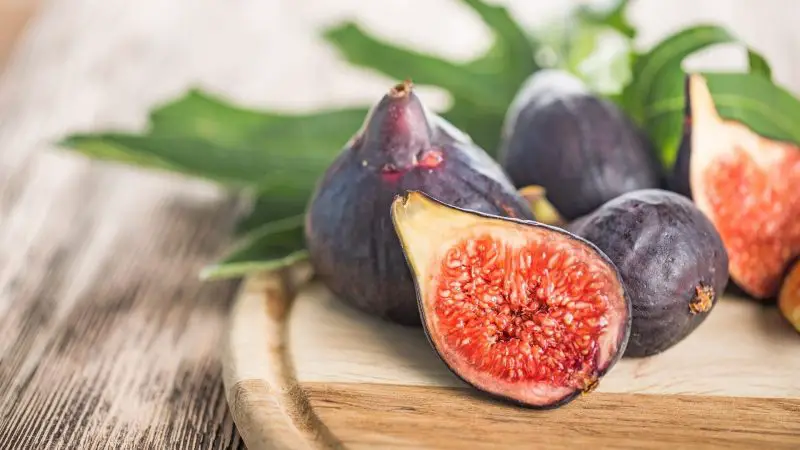
In 100 g (3 oz) of figs, there is:
- Total of 74 calories – Highly caloric, but this value is quite enough for a fruit.
- 19 g carbs – A good amount of carbs; fast source of energy.
- 75 g protein – Small amount of protein for a slow-release source of energy.
- 30 g fat – Small amount of fat, which is great for those maintaining weight or keeping track of fattening nutrients.
- 16 g sugar – This is a lot for cavies!
- 0 mg cholesterol – This is great because cholesterol is known to damage blood vessels and the cardiovascular system.
- 9 g fiber – For great digestion. This amount of fibers is great for fast digesting of food and better bowel movements.
- 5% folate – A crucial B vitamin. This vitamin makes healthy DNA cells and is very important for growth and development. This is why it’s the vital supplements for all those who are pregnant, including cavies.
- 5% vitamin A – A very strong antioxidant that fights the damage caused by free radicals. Also, this vitamin fights inflammation, keeps immunity good, eyesight healthy too, and keeps brain, skin, lungs, kidneys, and heart in good shape.
- 3% vitamin C – The most important of them all. Cavies need this vitamin as much as they need oxygen!
- 1% vitamin E – For slower aging, prevention of heart problems, inflammation, and cancer. It is also for better eyesight and healthier skin tissues.
- 4% vitamin K – For healthy bones and bone tissues and normal blood clotting.
- 1 mg sodium – Enough salt for a fruit.
- 5% potassium – Prevention from stroke, and high pressure. It is also for a better balance of electrolytes and water, for the healthy nervous system, good metabolism, healthy muscles, less stress and anxiety, and for a healthy heart and kidneys.
- 35 mg calcium – For healthy bones, but this mineral is not healthy for guinea pigs. It makes urinary problems like stones in bladder or kidneys.
- 5% iron – For healthy blood.
- 17 mg magnesium – For healthy bones, prevention of diabetes, less pains and aches, and can lessen stress.
- 5% manganese – The most potent antioxidant and best shield for diseases.
- 1% zinc – For healthy DNA cells, for healthy immunity, good metabolism of cells, fast healing of wounds and good growth and development.
Risks to Consider When Feeding Figs to Guinea Pigs
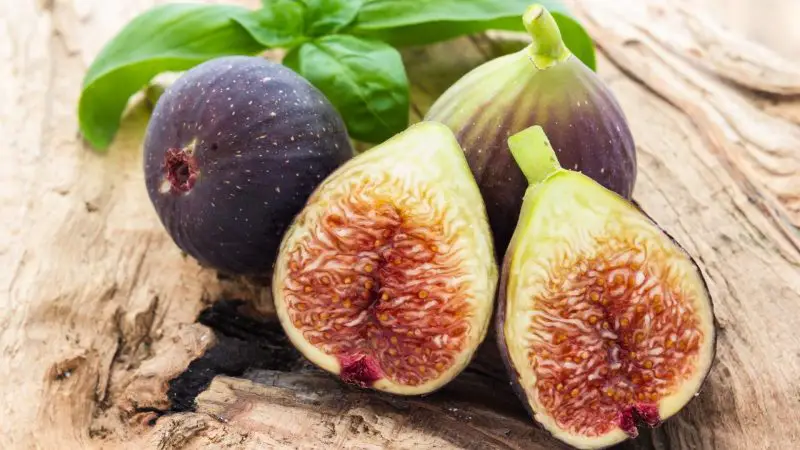
One of the risks is the calcium in figs. If they eat a lot of figs, excess of calcium will build up in the urinary tract and the cavy might get bladder and kidney stones.
Also, too much figs will increase the blood sugar level which is a risk for the gut flora of cavies. Their stomach is not designed to digest lots of sugars as us humans.
Also, too much figs means too many fibers. And this means loose stool or upset belly!
Serving and Frequency of Figs for Guinea Pigs
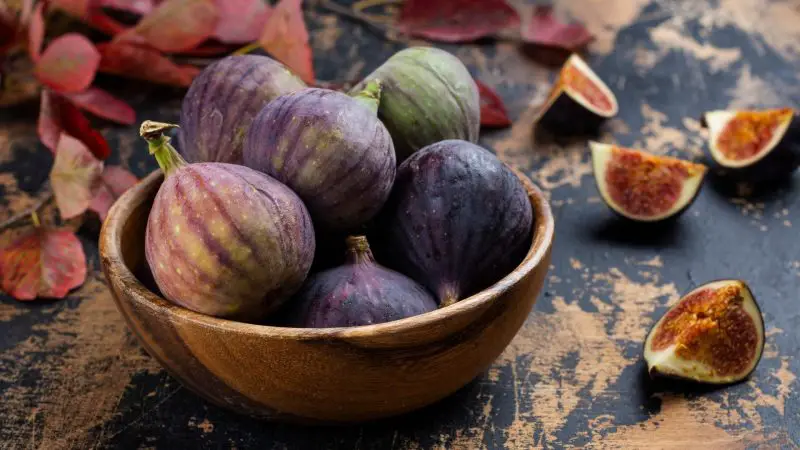
The figs are nutritious, but they have both beneficial and harmful nutrients for cavies. The normal frequency is 2-3 times per week. A normal serving would be 1-2 small figs, or a few chunks, i.e., one large fig sliced up.
Your cavies would be thrilled to receive such a tasty treat and they would go crazy for the taste too! We can agree this is a great natural dessert.
Quick Facts on Figs
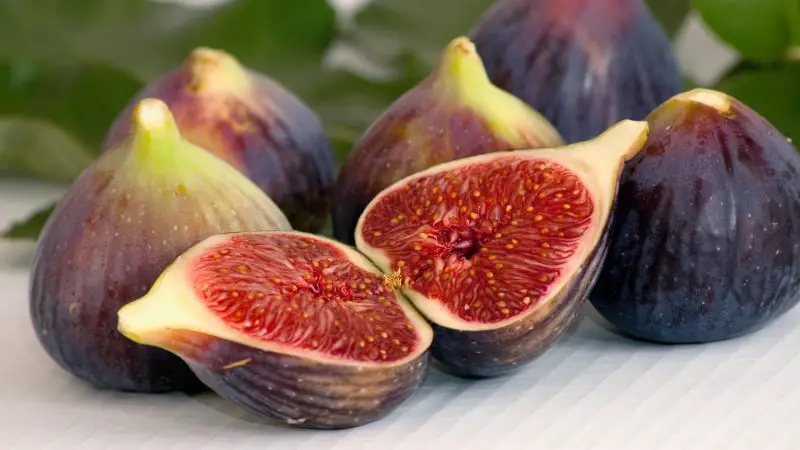
- Cavies can eat figs, but in moderation.
- Figs have carbs and proteins for energy.
- They also have vitamins (A, K, E) for overall health and immunity.
- There is vitamin C – the vital vitamin for cavies.
- Figs are healthy for the cardiovascular system; they have no cholesterol.
- There is calcium in figs, so serve in moderation.
- The rule: A few large chunks, 2-3 times per week.
We have also made a full list of foods that guinea pigs can and can’t eat (150+ Types of Foods). Be sure to also check our recommended products page for everything you will ever need to assure a happy life for your guinea pigs. Hope this information was helpful and you have found the answer you were looking for.
List of Sources
Vitamin C Requirements of the Guinea-Pig
Nutrient Requirements of Laboratory Animals: Fourth Revised Edition
The Effects of Diet on Anatomy, Physiology and Health in the Guinea Pig
